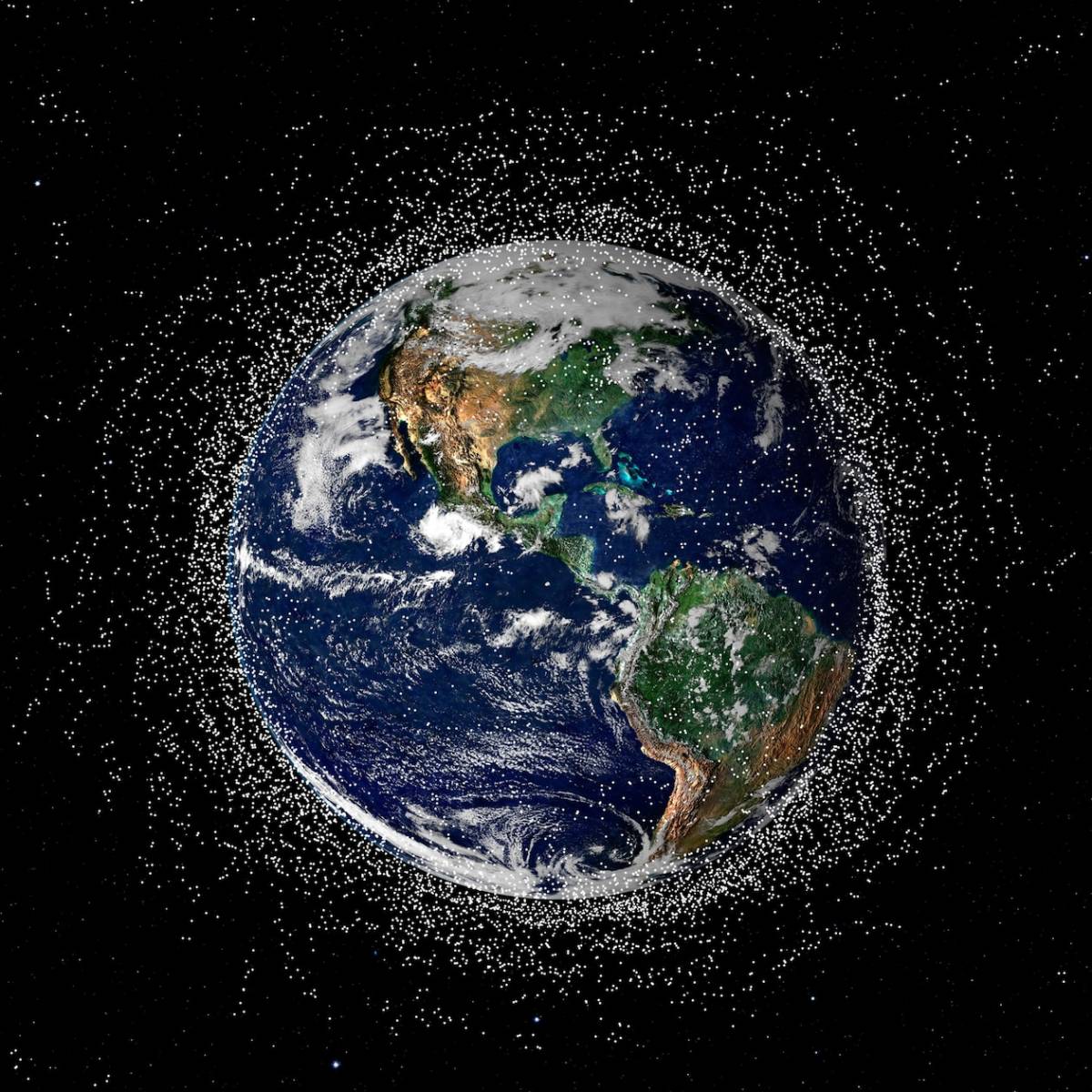NASA takes action as space pollution threatens scientific research
If left unresolved, the debris in space may result in the collision of satellites, which could pose a significant security risk

In a recent report, NASA raised concerns about the growing crisis of space pollution, which threatens scientific research and puts astronauts' lives at risk.
The future of space missions and the safe use of Earth's outer orbit depend on removing the accumulating space debris. Large amounts of space debris have become a concern in the lower Earth orbit (LEO) region. More than 8,000 metric tons of human-made objects, including over 13,000 defunct satellites, orbit the planet.
Although multiple countries have contributed to this issue, the United States is a significant contributor, with approximately 30% of operational satellites in orbit. As a result, our collective responsibility is to address the challenge of space debris and take necessary actions to ensure safety and sustainability in space exploration.

Space pollution
This pollution crisis in space also poses a risk to rockets and equipment, as over 9,000 metric tons of garbage travel faster than a bullet. Even a tiny fragment moving at high speeds can damage equipment in space, potentially affecting structures like the International Space Station's windows. A report from The Guardian in 2023 uncovered the challenges astronomers face due to uncontrolled space junk, which impacts telescopic observations and hinders discoveries.

Uncontrolled space junk
Elon Musk's SpaceX has contributed to the problem with over 5,000 satellites already in orbit and plans for an additional 30,000 Starlink satellites. Experts are concerned that uncontrolled space junk impacts telescopic observations and hinders discoveries.

Orbital trash
To tackle this challenge, NASA has unveiled the first phase of its new Space Sustainability Strategy, which focuses on cleaning up the junk in orbit around Earth. The strategy is an agency-wide effort to ensure that the space around Earth is cleaned up and that space resources are shared equitably and sustainably.

Pam Melroy, NASA's deputy administrator, says this was a long time coming and that the agency will roll out additional parts of the strategy in the coming months. The plan is designed to address the most pressing space issue today—the orbital trash problem. Nearly 10,000 functioning satellites encircle the globe, and there are also many more defunct spacecraft, derelict rocket bodies, and millions of pieces of other garbage hurtling around our planet at some 17,000 miles per hour.

Scientific research in peril
The recent incidents, such as a strange object colliding with a Florida location last month, have been traced back to debris from the International Space Station, confirming the severity of the space pollution issue. NASA's new strategy is a step in the right direction to ensure that this growing problem does not hamper future scientific research and that the space around Earth is safe and sustainable for generations to come.

Ban on weapon testing
The United States, China, and India have conducted tests on anti-satellite missiles by blowing up their satellites, which resulted in the creation of space debris. This issue became so severe that in 2022, the Vice President of the United States, Kamala Harris, requested a worldwide ban on such weapons testing that pollutes the space environment.

